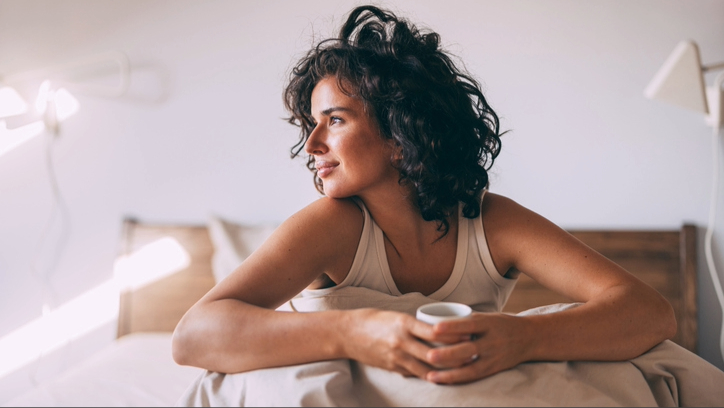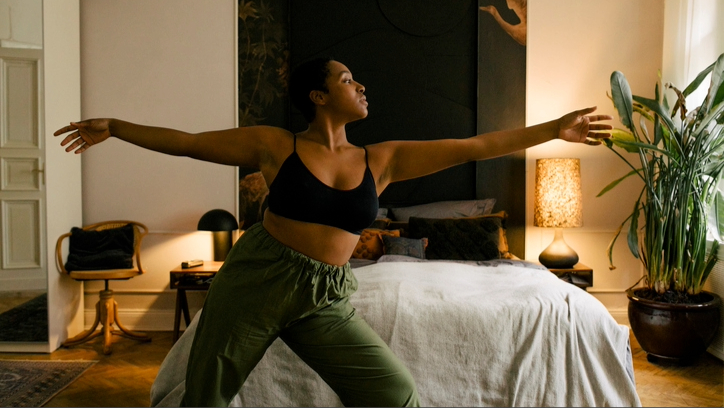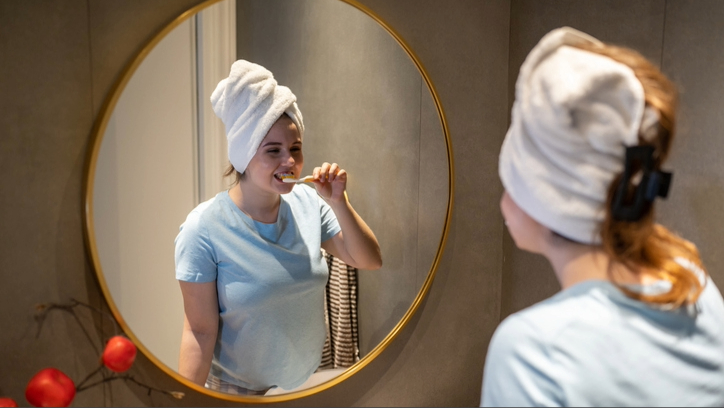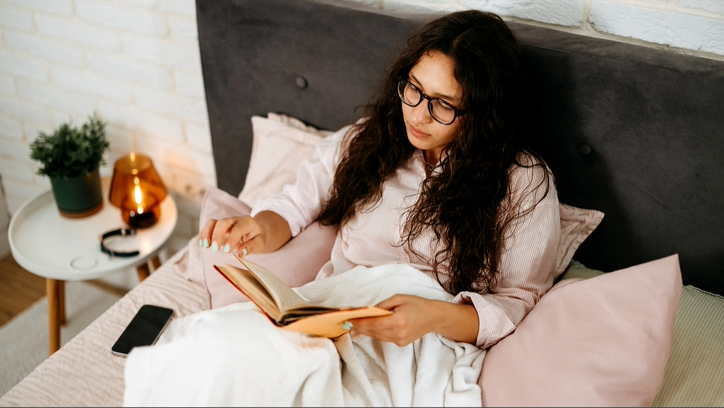This simple nighttime routine helps me fall asleep fast — even in a heatwave
5 nighttime habits I rely on to fall asleep fast (yes, even in a heatwave)

Here at Tom’s Guide our expert editors are committed to bringing you the best news, reviews and guides to help you stay informed and ahead of the curve!
You are now subscribed
Your newsletter sign-up was successful
Want to add more newsletters?
Join the club
Get full access to premium articles, exclusive features and a growing list of member rewards.
Anyone who knows me knows I love summer. BBQs, beach days and beer gardens are all a bit of me. But one thing I dread about the warmer climes? Sweaty, sleepless nights.
As a sleep writer with a special interest in sleep tech and cooling sleep technology, I've tested everything from the best cooling mattresses you can buy online right now to smart beds with world-class climate control tech.
But one thing I've discovered is you needn't splash more than you can afford in pursuit of cooler sleep. Informed sleep hygiene habits can go a long way to helping you sleep comfortably. Yes, even in a heatwave.
From switching my workout from evening to morning to eating an earlier dinner, these are my five tried-and-trusted steps towards better temperature regulation and more peaceful sleep this summer.
5 things I do during the day and before bed to sleep cool
I’ve been working hard on optimizing my nighttime routine for cooler, better sleep. Here’s what it entails…
Step 1. Swap an evening workout for a morning one
No surprises here. Intense exercise raises your body temperature, tampering with your ability to fall asleep. The nights are sweaty enough at this time of year without post-workout sweat added on top.
Therefore, during summer, I take a light evening stroll or stretch in the evening and save intense exercise like hitting the gym or running for the morning or early afternoon.

Without cramming exercise into my evening, it also means I can eat an earlier dinner, which also has surprising sleep benefits. Your body heats up when it metabolises food due to the thermal effect of digestion, so allowing two to three hours between dinner and bed is an eating habit recommended by sleep experts.
Step 2. Take a pre-bedtime shower
One of my key sleep tips is don't underestimate the importance of an evening shower. Not only do they help regulate body temperature for better sleep, but also wash away allergens that have built up on your skin through the day. Taking allergens to bed can make your skin, nasal passages and eyes irritated at night, causing you to feel stuffy and uncomfortable.
What's more, it sounds odd, but a warm shower at night can actually cool you down for sleep. A review of 13 studies in 2019 concluded a warm bath or shower between 104 and 108.5 °F (40 and 42.5 °C), taken one to two hours before bedtime, improved self-rated sleep quality and sleep efficiency, and shortened sleep onset latency.
After stepping out of a warm bath or shower, your body temperature dips. This mimics the natural core temperature drop we experience in the run up to falling asleep, helping to signal to your brain and body that it's time to wind down.
Step 3. I wear breathable pyjamas
Sure, it can be tempting to strip off on warm summer nights, but experts say don’t sleep naked when it comes to sleeping well through a heatwave. Lightweight cotton nightwear is the way to go for cooler sleep.

How does this make sense? Sleeping naked means warm sweat sticks to your skin, heating you up, whereas pyjamas soak up the sweat to cool you down. Cotton is a favorable summer material as it's open cell weave allows good airflow, helping to wick away moisture and dissipate heat.
Step 4. Sip on a warm bedtime tea
While drinking a warm drink for cooler sleep seems contradictory, bedtime tea is shown to have sleep inducing benefits. Yes, your body temperature rises slightly when you initially drink the tea but it can also trigger a cooling response.
Increased sweating and evaporation, particularly in drier environments, prompts a rapid temperature decline, replicating the temperature drop your body needs to fall asleep.
A 2023 systemic review by UK researchers concluded tea had positive outcomes for stress, anxiety and sleep health. Herbal teas particularly have a calming effect which indirectly helps regulate body temperature as heart rate and cortisol levels lower. This improved temperature regulation facilitates better sleep.
Step 5. I read in bed instead of scrolling on my phone
What does reading have to do with temperature? Not a lot. But the calming activity calms your body, in turn, cooling it down. I find reading helps me let go of stress at the end of the day. Less stress means a lower heart rate and, therefore, lower body temperature, allowing you to drift off into a more peaceful, less sweaty sleep.

Why is a nighttime routine so important?
No matter the time of year or weather forecast, a consistent nighttime routine is the bedrock of quality sleep. Essentially a nighttime routine helps regulate your circadian rhythm. What that means is your body will know when it is time to wind down to sleep and when it is time to get up with energy.
Children's bedtime routines usually involve a bath, story or lullaby, and adults shouldn't stray too far away from that. You should aim to implement steps into your evening, including calming activities, that your body can come to recognise as a cue to sleep.

Eve is a sleep tech product tester and writer at Tom's Guide, covering everything from smart beds and sleep trackers, to sleep earbuds and sunrise alarm clocks. Eve is a PPA-accredited journalist with an MA in Magazine Journalism, and has four years’ experience writing features and news. In her role as Sleep Tech Product Tester and Writer for Tom's Guide, Eve is constantly trying out and reviewing the latest sleep products from brands such as Apple, Garmin, Whoop, Hatch, Sleep Number, Eight Sleep, and Oura. A fitness enthusiast who completed the London Marathon earlier this year, Eve loves exploring the relationship between good sleep, overall health, and physical performance, and how great sleep tech can make that relationship even better.
You must confirm your public display name before commenting
Please logout and then login again, you will then be prompted to enter your display name.
 Club Benefits
Club Benefits










